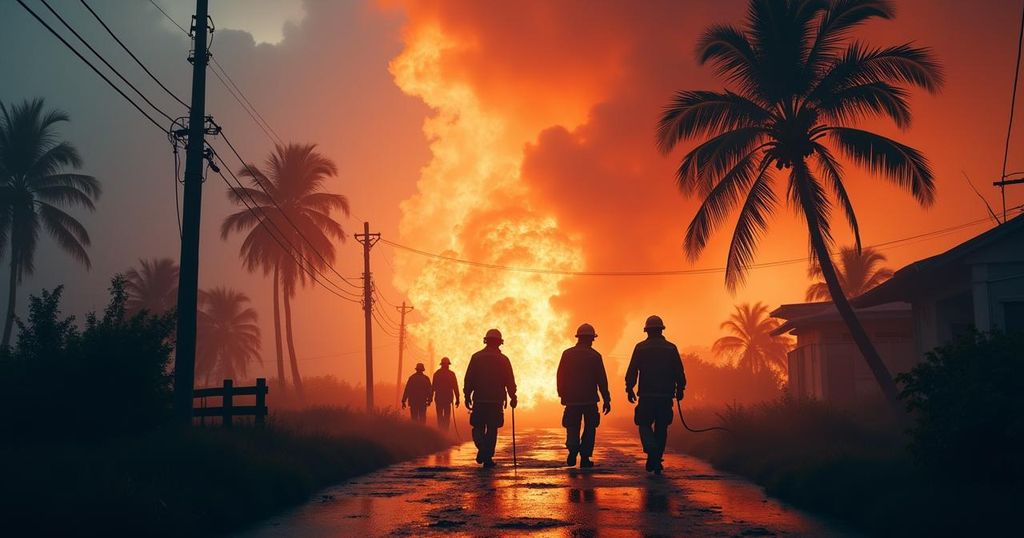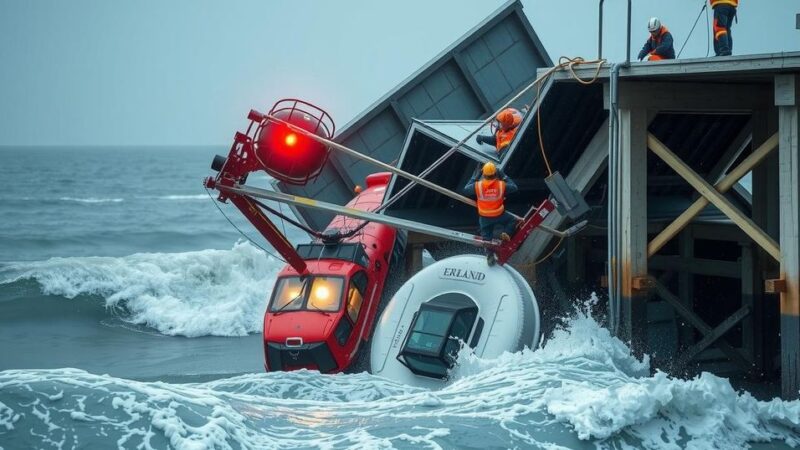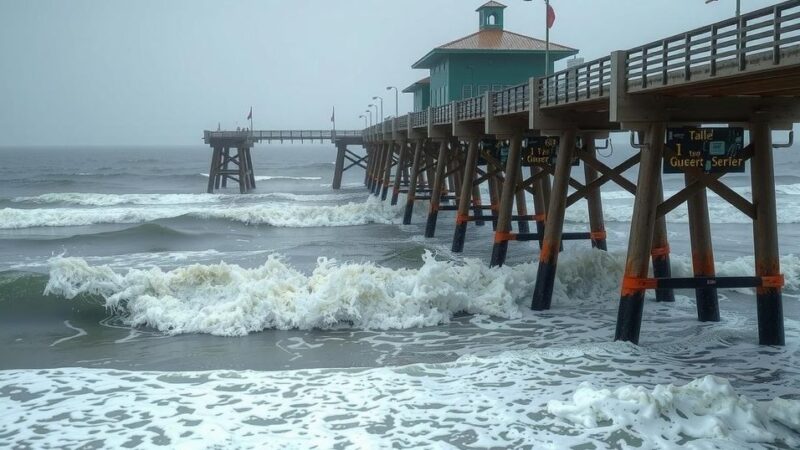The death toll from Hurricane Helene has risen to 200, primarily in North Carolina, as search efforts continue. President Biden is touring impacted areas and has approved federal disaster assistance. Significant logistical challenges remain with many homes without power and individuals reported missing, exacerbated by the potential for additional rainfall and limited resources for further recovery efforts.
The aftermath of Hurricane Helene has become increasingly grim, with the death toll increasing to 200 as rescue operations persist in the search for survivors. The hurricane, which struck the Southeast United States, has disproportionately affected North Carolina, where over half of the fatalities occurred. Communities have been completely devastated, representing the most lethal hurricane to hit the mainland since Hurricane Katrina in 2005. Approximately one million homes remain without power nearly a week following the storm’s landfall. Additionally, hundreds of individuals are reported missing. President Joe Biden is currently engaged in a two-day tour of the impacted regions, having visited areas in Florida and Georgia. He undertook an aerial examination of the destruction in Tallahassee, where the hurricane made landfall as a Category 4 storm. In response to the disaster, President Biden approved federal disaster assistance for the states of Florida, Georgia, North Carolina, South Carolina, and Virginia. In North Carolina, tens of thousands are without running water, particularly in the highly affected mountainous region of Asheville. The situation has also led to the relocation of approximately 800 inmates from state prisons due to electrical outages. Road closures are plentiful, with hundreds still obstructed, complicating aid delivery to the most affected communities. The storm has also claimed lives in South Carolina, Georgia, Florida, Tennessee, and Virginia. In the federal response, over 6,700 National Guard members from 16 states are currently providing ground support, along with the deployment of 1,000 active-duty soldiers to aid recovery operations. President Biden assured that the federal government would cover all emergency protective measures and debris removal costs in North Carolina for six months and for 90 days in Georgia and Florida. Former President Donald Trump also surveyed the damage in Georgia earlier this week. Compounding the crisis, additional rainfall is anticipated in parts of the Gulf Coast and Florida, which could further hinder recovery efforts. The Atlantic hurricane season persists through the end of November, raising concerns about future storms impacting the region. Homing in on this concern, U.S. Homeland Security Secretary Alejandro Mayorkas indicated that FEMA lacks sufficient funding to manage additional storms this season, underscoring the urgency of support. The Biden administration has facilitated the shipment of over 8.8 million meals, 7.4 million liters of water, 150 generators, and 225,000 tarps to the affected areas as recovery efforts continue.
Hurricane Helene has wreaked havoc across the Southeastern United States, leading to significant loss of life and extensive damage to infrastructure. It is noteworthy that the storm struck at a critical time during the Atlantic hurricane season, emphasizing the need for preparedness and responsive actions by federal and state governments. The situation remains dire as many communities face challenges related to power outages and water supply, with ongoing rescue operations to locate missing individuals.
In summary, Hurricane Helene has resulted in a tragic loss of life and widespread devastation, particularly in North Carolina, where the majority of the casualties have been reported. The federal and state governments are actively engaged in recovery efforts, although significant challenges remain due to infrastructure damage and ongoing weather complications. The situation highlights the importance of emergency preparedness and support in the face of natural disasters.
Original Source: www.bbc.com







